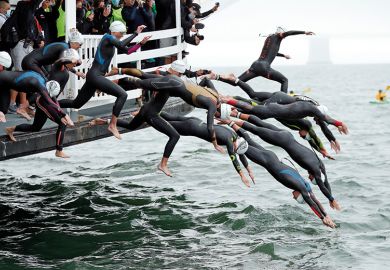Efforts to increase the number of Indigenous academics in Canadian universities could be knocked off course after a high-profile aboriginal dean sued her institution for discrimination, it has been warned.
Angelique EagleWoman, who became the first Indigenous law school dean in Canada in 2016, filed a lawsuit against Lakehead University last month for constructive dismissal and racial discrimination, claiming that the institution actively demeaned her and exploited her to raise money and attract Indigenous students.
Professor EagleWoman resigned from the institution in June, just two years into her five-year term, and is seeking C$2.6 million (£1.5 million) for lost income and punitive damages.
Canadian universities have doubled down on their efforts to recruit more Indigenous staff and students and “indigenise” the curriculum in the wake of the Truth and Reconciliation Commission of Canada’s 2015 report. The document included 94 “calls to action”, several of which relate to education, to atone for discrimination against and abuse of Indigenous communities.
But Kim TallBear, associate professor and Canada research chair in Indigenous peoples, technoscience and environment at the University of Alberta, said that universities would fail to make progress on hiring Indigenous academics if Lakehead does not “seriously acknowledge that the forms of racism, exclusion and barriers to success that EagleWoman outlines in her complaint are in fact structurally present in the Canadian academy and Canadian society overall”.
“Indigenous academics and community members in Canada and the US will watch this case closely,” she added. “All of the charges in EagleWoman’s complaint are scenarios other Indigenous academics, students and professionals recognise from our own experiences.”
Aaron Mills, assistant professor in the faculty of law at McGill University, said that Professor EagleWoman “stood to make a truly important contribution” at Lakehead and “the challenges she describes reflect the ongoing reality of colonialism in higher education”.
“Some institutions are grappling much more successfully with that challenge than are others. Some institutions are less concerned with taking up that challenge than are others,” he said.
An Indigenous associate professor at a Canadian university, who wished to remain anonymous, said that aboriginal academics were “burdened with fixing the historical exclusion, mentoring First Nations students and always in advocacy mode, leaving little room for actual scholarship parallel to their peers’ careers”.
However, Frances Widdowson, associate professor in political science at Mount Royal University and co-author of the 2008 book Disrobing the Aboriginal Industry: The Deception behind Indigenous Cultural Preservation, claimed that the Lakehead case reflected broader questions about the “compatibility” of Indigenous culture and academia.
“In Indigenous culture…there is this idea that certain people hold knowledge, they should be respected and you shouldn’t question what they say or challenge them. You can see how this is going to cause huge problems within the academy,” she said.
Professor EagleWoman said in response that “the idea that intellectual inquiry or curiosity is somehow stifled for Indigenous people is completely off base”.
A Lakehead spokeswoman said that the university had received a statement of claim from Professor EagleWoman’s lawyer, but that the institution “does not comment on any litigation or personnel matters”.
后记
Print headline: Indigenous discrimination case in Canada raises red flags




